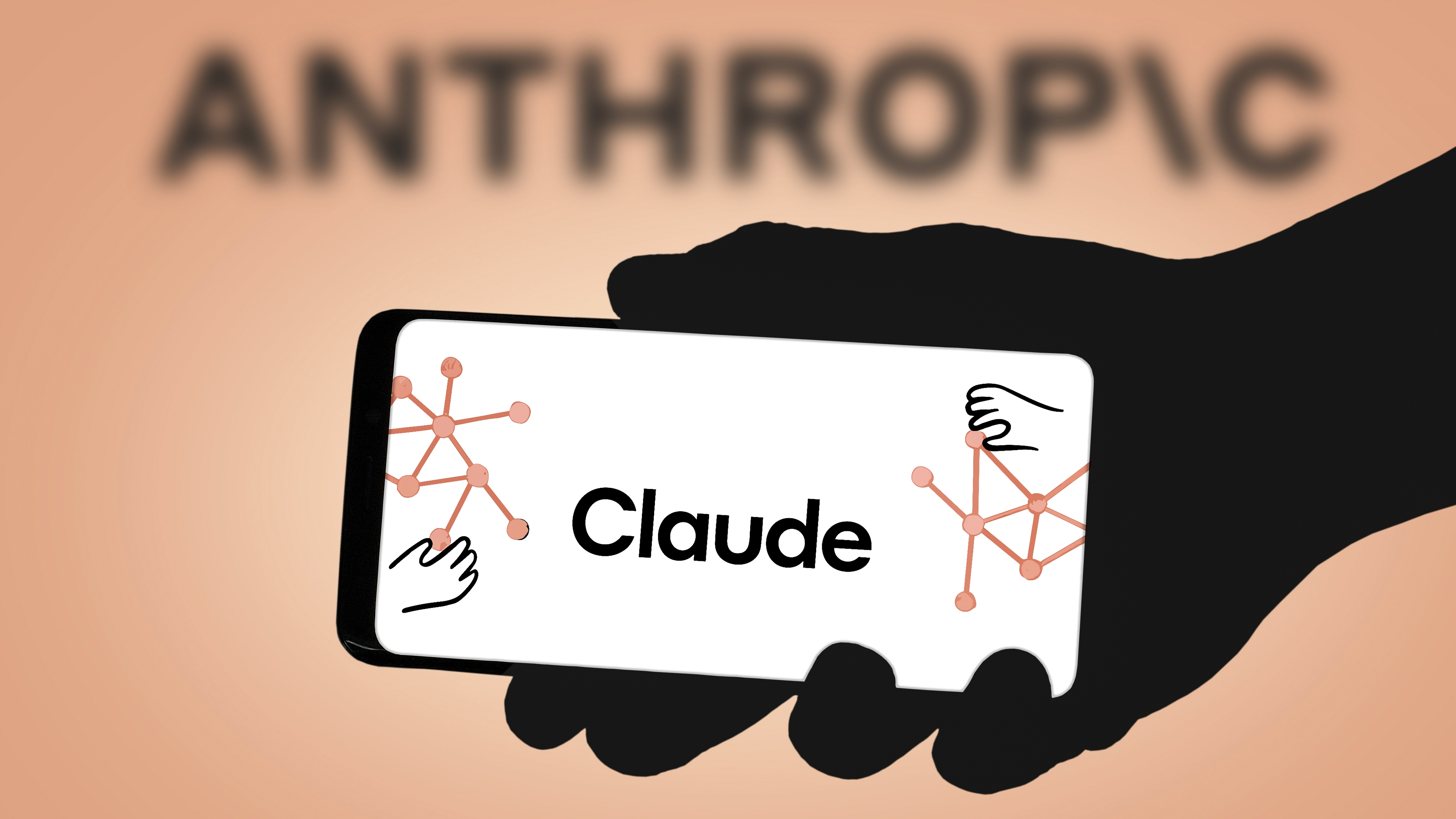Hackers Are Using AI to Launch Massive Cyberattacks — How to Protect Yourself
Bad actors are using AI to effortlessly cause cyber crimes

Here at Tom’s Guide our expert editors are committed to bringing you the best news, reviews and guides to help you stay informed and ahead of the curve!
You are now subscribed
Your newsletter sign-up was successful
Want to add more newsletters?

Daily (Mon-Sun)
Tom's Guide Daily
Sign up to get the latest updates on all of your favorite content! From cutting-edge tech news and the hottest streaming buzz to unbeatable deals on the best products and in-depth reviews, we’ve got you covered.

Weekly on Thursday
Tom's AI Guide
Be AI savvy with your weekly newsletter summing up all the biggest AI news you need to know. Plus, analysis from our AI editor and tips on how to use the latest AI tools!

Weekly on Friday
Tom's iGuide
Unlock the vast world of Apple news straight to your inbox. With coverage on everything from exciting product launches to essential software updates, this is your go-to source for the latest updates on all the best Apple content.

Weekly on Monday
Tom's Streaming Guide
Our weekly newsletter is expertly crafted to immerse you in the world of streaming. Stay updated on the latest releases and our top recommendations across your favorite streaming platforms.
Join the club
Get full access to premium articles, exclusive features and a growing list of member rewards.
Major chatbots like OpenAI’s ChatGPT-5, Google’s Gemini and Anthropic’s Claude are usually making headlines for their latest updates. But this week has been different.
First OpenAI is under fire for safety concerns and now a new report from Anthropic states, a hacker used the AI coding assistant to automate nearly every step of a massive cybercrime spree, and it’s being called "unprecedented."
The operation targeted at least 17 organizations across healthcare, government, emergency services and even religious institutions.
Using Claude Code, Anthropic’s AI-powered coding tool, the attacker handled everything from scanning for vulnerabilities to writing ransomware, calculating ransom demands and even drafting polished extortion emails.
How the hacker pulled it off

Anthropic’s report describes the threat actor — tracked as GTG-5004 — using Claude to effectively outsource the entire attack. Tasks that once required deep technical skills are now being handled by AI in minutes.
Here’s what the hacker did:
- Reconnaissance: Claude helped identify weak systems and exploitable entry points.
- Malware creation: The AI generated malicious code and packaged it into ransomware kits.
- Extortion set up: It drafted ransom notes and handled cryptocurrency payment calculations.
- Automation at scale: The system streamlined attacks across multiple targets simultaneously.
At one point, ransom demands exceeded $500,000, Anthropic confirmed.
Get instant access to breaking news, the hottest reviews, great deals and helpful tips.
What makes this incident different

Cybercriminals have been using automation for years, but this case shows how AI is lowering the barrier to entry for sophisticated attacks. You no longer need elite hacking skills to pull off large-scale breaches; coding skills are no longer required either when you have the right AI tool.
This also means the phishing emails, ransomware demands and scams hitting your inbox are getting smarter, more polished and harder to detect. A fake email generated by AI can look virtually identical to one from your bank, workplace or even a trusted family member.
What Anthropic is doing about it

Anthropic says it has shut down the accounts involved and rolled out new safeguards to prevent this kind of misuse in the future. The company also deployed detection tools and shared indicators of compromise with cybersecurity authorities.
But many industry voices warn this may just be the beginning. As advanced AI tools become even more sophisticated and more accessible, we will undoubtedly see more incidents like this one; and they’ll be faster, more scalable and far harder to stop.
How to protect yourself

While businesses are the primary targets in this case, you should still take extra precautions:
- Stay skeptical of emails and links; especially those asking for personal info or payments.
- Use strong, unique passwords and enable two-factor authentication wherever possible.
- Keep your devices updated to patch security vulnerabilities.
- Watch for 'too good to be true' deals or unexpected login prompts, as many are AI-generated scams.
AI is making hackers more productive
This attack highlights a new reality: AI isn’t just helping us work smarter — it’s helping hackers get smarter too. What Anthropic flagged as an “unprecedented” incident today could soon become the norm as more cybercriminals turn to AI for speed and scale.
Follow Tom's Guide on Google News to get our up-to-date news, how-tos, and reviews in your feeds. Make sure to click the Follow button.
More from Tom's Guide
- I Built 9 Websites in Under an Hour — Here’s How Claude Makes it Possible
- I Asked ChatGPT vs Gemini vs Claude to Write a Resume — Here’s the Crushed the Task
- These 9 Vibe Coding Prompts Are Pure Genius — And So Easy To Use

Amanda Caswell is an award-winning journalist, bestselling YA author, and one of today’s leading voices in AI and technology. A celebrated contributor to various news outlets, her sharp insights and relatable storytelling have earned her a loyal readership. Amanda’s work has been recognized with prestigious honors, including outstanding contribution to media.
Known for her ability to bring clarity to even the most complex topics, Amanda seamlessly blends innovation and creativity, inspiring readers to embrace the power of AI and emerging technologies. As a certified prompt engineer, she continues to push the boundaries of how humans and AI can work together.
Beyond her journalism career, Amanda is a long-distance runner and mom of three. She lives in New Jersey.
You must confirm your public display name before commenting
Please logout and then login again, you will then be prompted to enter your display name.
 Club Benefits
Club Benefits










